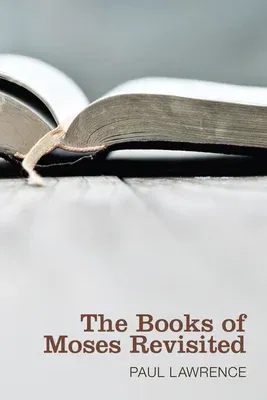Synopsis: Who wrote the first five books of the Bible? Does it really
matter who did? The Books of Moses Revisited explores this question by
comparing the covenants of Exodus/Leviticus and Deuteronomy with the
inter-state treaties of the late second millennium BC. Some compelling
similarities come to light, both in the pattern adopted and in many
small details. Lawrence clearly demonstrates this with many examples and
diagrams, yet without assuming that readers possess a detailed knowledge
of ancient history and linguistics. Despite the entrenchment of the
widely held theory--the so-called Documentary Hypothesis--that the first
five books of the Bible were the product of an anonymous editor living
many centuries after Moses, this book argues that the first five books
of the Bible bear many hallmarks of being late second millennium BC
compositions and that Moses should not be ruled out as being the author.
The book also explores how several ancient texts--the Egyptian Story of
Sinuhe, the Mesopotamian Epic of Gilgamesh, and Homer's Iliad and
Odyssey--were transmitted in antiquity and suggests that a similar
process also lies behind the transmission of the first five books of the
Bible. Author Biography: Paul Lawrence works for SIL International in
checking Bible Translations. He is the author of The IVP Atlas of Bible
History (2006).


